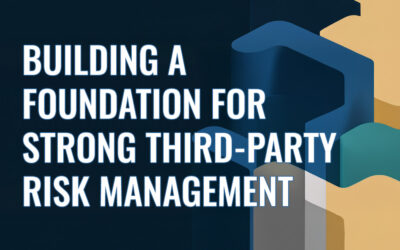The increasing complexity of the digital landscape makes cybersecurity more important than ever. As organizations become more reliant on technology, the risk of data breaches and other cyber-attacks also grows. An estimated 2,200 attacks occur daily, with one breach costing a US company approximately $9.44M.
The need for a strong and reliable cybersecurity infrastructure has become evident, and more organizations are looking to be compliant with cybersecurity standards and regulations. Regulatory bodies and external audit boards have developed frameworks such as NIST, ISO, and HIPAA, which outline the specific requirements and guidelines that organizations must adhere to regarding cybersecurity practices, controls, and risk management. Compliance with different frameworks ensures that organizations develop a comprehensive approach to protecting the organization’s data and digital assets from malicious actors.
Cybersecurity compliance enables organizations to gain a competitive advantage, reduce cyber risk, and reduce costs.
Gain Competitive Advantage
Cybersecurity certifications give businesses a competitive advantage by showcasing their dedication to safeguarding sensitive data and mitigating cybersecurity risks. Failure to demonstrate a strong security posture can erode the trust of customers, elongate sales cycles, and lead to lost deals. Compliance with different frameworks instills trust and confidence in customers by demonstrating a commitment to adhering to industry best practices and compliance standards. The presence of cybersecurity certifications can enhance an organization’s reputation and serve as a differentiator in competitive markets, giving businesses a valuable marketing advantage and positioning them as reliable and trustworthy stewards of sensitive information.
Reduce Cyber Risk
Being compliant with relevant regulatory frameworks and cybersecurity standards is essential for organizations to effectively reduce cyber risk. These frameworks provide a structured approach to cybersecurity, outlining specific requirements and guidelines that organizations must adhere to. By implementing the recommended controls and practices outlined in these frameworks, organizations can strengthen their security posture, identify vulnerabilities, and proactively address potential cyber threats. Furthermore, compliance with regulatory frameworks ensures that companies stay up-to-date with evolving cybersecurity threats and industry best practices, ultimately helping organizations mitigate risks, prevent breaches, and safeguard their valuable assets.
Reduce Costs
Being compliant can help organizations reduce costs in several ways. Firstly, compliance with regulations helps organizations avoid costly penalties and fines that may be imposed for non-compliance. In May 2023, Meta was fined $1.3 billion for violating EU privacy laws. By meeting the required standards and guidelines, organizations can mitigate the risk of regulatory violations and the accompanying financial consequences.
Secondly, regulatory compliance often entails implementing best practices and security measures to protect sensitive data and systems. These measures can help prevent security breaches and data breaches, which can be incredibly expensive to remediate. By investing in robust security controls and protocols, organizations can reduce the likelihood of cyber incidents and the associated financial burdens. Additionally, regulatory compliance often encourages efficient and effective processes, improving operational workflows, reducing errors, and enhancing productivity. This streamlined approach can result in cost savings by optimizing resource allocation and minimizing waste.
Lastly, cyber certifications can help organizations obtain cyber insurance. Cyber insurance is becoming increasingly hard for organizations to get and carriers are enforcing harsher cybersecurity requirements as part of the underwriting process. Cybersecurity certifications can help organizations demonstrate to insurers that they have implemented appropriate security controls and are taking steps to protect sensitive data, resulting in lower premiums than organizations with a less robust cybersecurity program.
Vendor Risk Management is Critical to Compliance
Developing a strong vendor risk management program is a critical component to comply with various regulatory and compliance frameworks, including GDPR, CCPA, HIPAA, SOC 2, and ISO 27001. The emergence of more stringent privacy laws has made vendor risk management increasingly crucial, especially considering the evolving nature of vendor relationships.
As organizations collaborate more closely with vendors and third-party partners, sharing sensitive data and granting them access to critical systems, the potential risks and privacy concerns multiply. For example, CCPA and GDPR mandate that organizations ensure the protection of personal data throughout the entire data lifecycle, including when it is shared with or processed by vendors. A strong vendor risk management program is becoming a staple of a strong security program and is required by the common regulatory and compliance frameworks.
ProcessBolt is committed to helping organizations like yours manage vendor risks effortlessly, inexpensively, and comprehensively through our airtight, automated processes. ProcessBolt is transforming the vendor risk management process by leveraging AI to complete security assessments. ProcessBolt AI is a fully integrated AI-driven platform that extracts intelligence directly from vendor policy documents to populate security assessments and correlates that data with the vendor’s attack surface intelligence, taking an enormous amount of friction out of the vendor risk assessment process.
With ProcessBolt AI, you can focus your time on remediating and addressing vendor risk instead of worrying about gathering and verifying the accuracy of security risk assessments.
Request a Demo
Complete this form to receive a personalized walk-through of ProcessBolt and learn how it can enhance your organization’s third-party risk management program.




